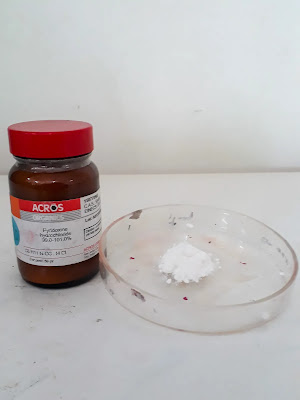SDS for Pyridoxine Hydrochloride: Safety Data Sheet & Hazards Information
The water-soluble vitamin pyridoxine hydrochloride, generally known as vitamin B6, is crucial for a number of metabolic functions in the body. It can be obtained as a dietary supplement in addition to being frequently found in food sources such as meats, whole grains, & vegetables.
Hazard Identification:
- The Globally Harmonized System of Classification & Labeling of Chemicals’ criteria states that pyridoxine hydrochloride is not a dangerous chemical (GHS).
- High amounts, however, may harm the nerves & produce tingling in the extremities.
Composition/Information on Ingredients:
- Name Pyridoxine Hydrochloride.
- CAS#: 65-23-6.
- Molecular formula: C8H11NO3·HCl.
- Molecular weight: 205.62.
First-Aid Measures:
- If you accidentally eat something, get help right away.
- In the event of eye contact, thoroughly rinse with water for at least 15 minutes, &if discomfort continues, seek medical attention.
Handling & Storage:
- Store away from heat sources and in a cool, dry location.
- Keep the container away from incompatible items and properly sealed.
- Always handle in a room with good ventilation.
Exposure Controls/Personal Protection:
- The use and handling of pyridoxine hydrochloride don’t require any particular safety measures.
- To avoid inhalation and skin and eye contact, as with all chemicals, is advised.
Physical & Chemical Properties:
- Appearance: White crystalline powder.
- Melting point: >300 °C (decomposes).
- Solubility: Soluble in water.
- pH: 7 (1% w/v aqueous solution).
Stability & Reactivity:
- Pyridoxine Hydrochloride is stable when stored and handled according to standard procedures.
- Avoid coming into contact with strong acids and oxidizers.
Toxicological Information:
- Oral LD50 > 5000 mg/kg (rat).
- Pyridoxine hydrochloride is believed to be handled and used normally without causing any negative side effects.
Ecological Information:
- Not available.
Disposal Considerations:
- Pyridoxine Hydrochloride should be disposed of in compliance with all applicable local, state, & federal laws.
Conclusion:
A water-soluble vitamin that is crucial to numerous bodily metabolic processes is pyridoxine hydrochloride. Although it isn’t regarded as dangerous, large amounts could harm your nerves. It must be handled, stored, and disposed of appropriately and in compliance with the law. Use of it as a dietary supplement is secure.

